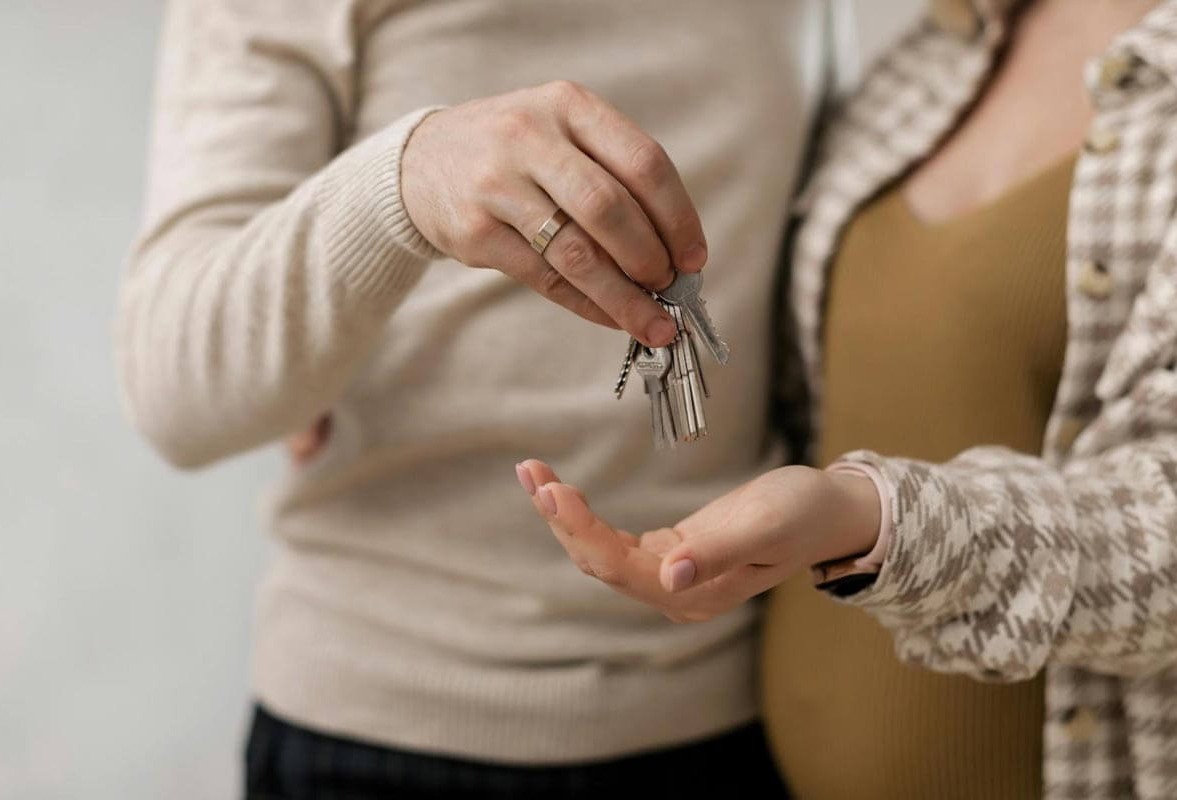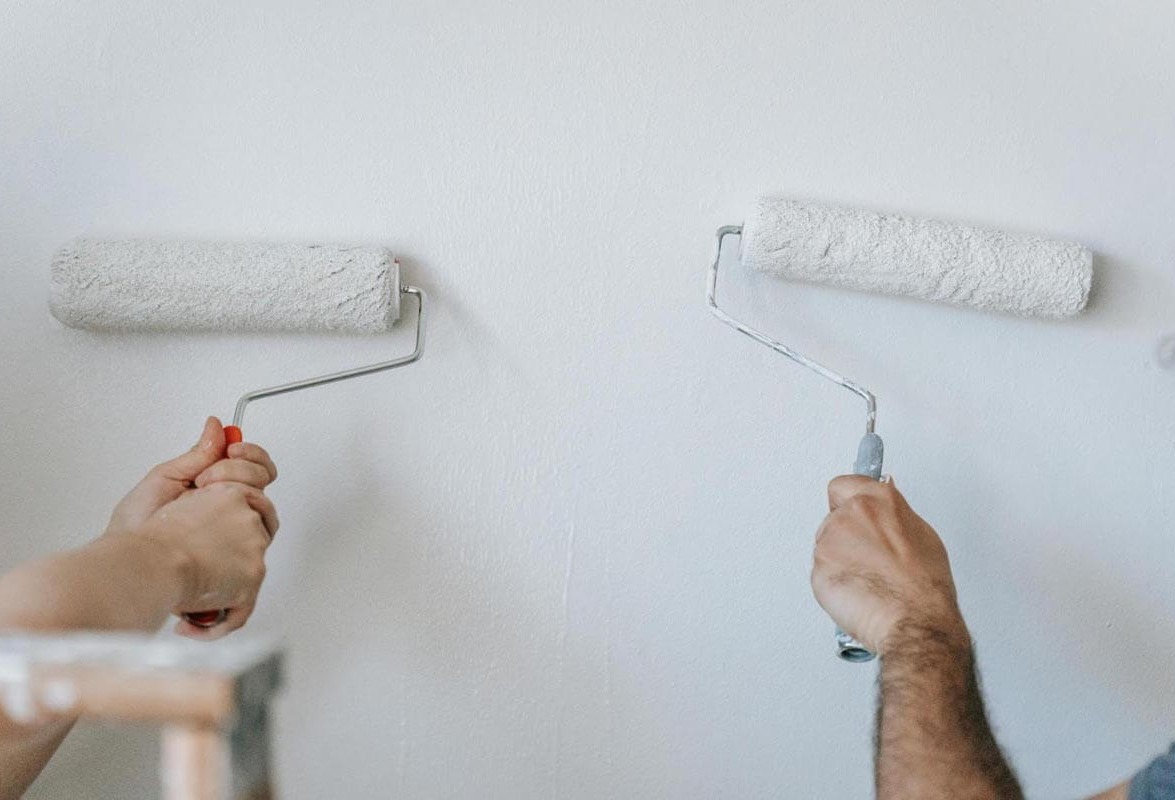
Chasing the Wind: A Paraw Captain’s Journey
April 23, 2025
Born and raised in Aklan, Danilo Villorente, 56, has spent over three decades ...
November 22, 2024
In the Philippines, many people face the dilemma in deciding on a condo vs. an apartment. This decision involves considerations like location, maintenance responsibilities, and community living, making it a complex choice that reflects individual needs and financial situations.
On one hand, a condo property often offers modern amenities, security, and potential for property appreciation, making it appealing for those seeking a lifestyle investment. On the other hand, an apartment typically comes with lower rental or purchase costs and more spacious living options, which can be more suitable for families or those on a tighter budget.
While condos and apartments may appear similar in terms of living spaces, the real differences lie in ownership, rights, and responsibilities.
In a condo, you own your unit and have shared ownership of common areas. This ownership often comes with a title. In contrast, apartments are typically rented spaces within a building owned by a landlord or property management company, meaning you have no ownership rights.
Condo owners have more control over their living environment, including the ability to renovate their units and participate in homeowners' association (HOA) decisions. Apartment tenants, however, must adhere to lease agreements and the rules set by the landlord, which can limit their ability to make changes to the space.
Condo owners are responsible for maintenance and repairs within their units, as well as contributing to the upkeep of shared facilities through HOA fees. Meanwhile, tenants generally have fewer responsibilities regarding maintenance, as these duties usually fall on the landlord.

Photo Courtesy of Alena Darmel via Pexels
These distinctions can significantly impact lifestyle choices, long-term financial commitments, and overall living experience.
Understanding the differences between condos and apartments is crucial for effective financial planning and making informed lifestyle choices. This decision impacts various aspects of life, from budgeting and investment potential to daily living experiences.
Whether for ownership or lease, DMCI Homes has a long list of options in many premier locations. Properties are available for sale, for rent with pre-selling, and rent-to-own (RTO).
If you are in the market for a DMCI Homes property, this guide can help you make an informed decision. Learn about the important differences between condo ownership and apartment rentals, including the rights and responsibilities, the costs, and the legal implications of each housing option.
Condos are individually owned residential units within a larger condo building or complex. Owners hold a title for their specific unit and share ownership of common areas, such as hallways, pools, and gyms, with other residents. Condo owners typically pay HOA fees for maintenance and amenities, and they have the right to make changes within their unit, subject to HOA regulations.
Based on the Civil Code, apartments are rental units owned by a landlord or property management company. Tenants lease these spaces and do not hold ownership rights. The landlord is responsible for maintenance and repairs, while tenants must adhere to the terms of their lease agreement. Apartments can vary widely in size and layout, and they often provide fewer amenities compared to condos.

Photo Courtesy of cottonbro studio via Pexels
The key differences in ownership and living arrangements between condos and apartments can greatly influence your living experience:
|
Condo Ownership |
Apartment Rental |
|
|
Ownership |
Condo owners possess the title to their specific unit, which grants them the legal right to sell, rent out, or modify their space. |
Tenants do not own their living space; they lease it from a landlord or property management company. |
|
Owners collectively share responsibility for common spaces through an HOA. |
The landlord retains ownership and is responsible for the upkeep and maintenance of the entire building, including individual units. |
|
|
Owners can build equity over time, potentially benefiting from property appreciation. |
Tenants do not build equity; their monthly payments contribute to the landlord’s income rather than toward ownership. |
|
Living Arrangements |
Condo owners have more freedom to personalize their space within the guidelines set by the HOA. |
Tenants have restricted ability to modify their living space and must seek landlord approval for significant changes. |
|
Owners typically have a say in community decisions through participation in HOA meetings and voting on rules and budgets. |
Tenants must adhere to the terms of their lease, which can dictate everything from pet policies to maintenance requests. |
|
|
Owners pay monthly HOA fees for maintenance of common areas, which can vary based on amenities and services provided. |
Tenants usually don’t pay maintenance fees; the landlord covers these costs. However, tenants may face rent increases over time. |
Condos offer ownership rights and the ability to build equity, along with greater control over living spaces, while apartments provide flexibility and lower initial financial commitment without the burdens of ownership responsibilities.
When you purchase a condo, you acquire full ownership of your unit. This includes the interior space and the right to use it as you wish, subject to any community rules established by HOA. Ownership is evidenced by a title, which includes legal rights to sell, lease, or renovate your unit.
Moreover, condo owners collectively own shared spaces within the condo building or complex, such as hallways, elevators, recreational facilities, swimming pools, gardens, and parking areas. This shared ownership fosters a sense of community among residents.
The governance of these common areas is managed by an HOA, which is responsible for maintaining and overseeing the shared facilities, enforcing community rules, and managing the overall operation of the condominium complex.
Condo ownership offers the advantage of having a personal living space along with shared access to various amenities and community features. It fosters a sense of belonging while requiring owners to navigate the responsibilities associated with both their individual unit and shared areas.

Photo Courtesy of Kamaji Ogino via Pexels
When renting an apartment, tenants do not own the space. Instead, they enter into a lease agreement with a landlord or property management company, granting them the right to occupy the apartment for a specified period, usually ranging from six months to a year.
Tenants have no legal claim to the property beyond their rental agreement, meaning they cannot make modifications without permission and do not build equity over time.
Apartment rentals offer a practical solution for those seeking housing without the long-term commitment of ownership. While tenants enjoy flexibility and lower initial costs, they must navigate the constraints of lease agreements and the absence of ownership rights. Understanding these dynamics is crucial for making informed decisions about renting and ensuring a positive living experience.
Condo owners have specific rights regarding making changes to and maintaining their units, which are typically outlined in the HOA by-laws and the condo declaration.
Condo owners generally have the right to make changes or renovations within their unit. This can include remodeling the kitchen or bathroom, painting, or upgrading fixtures. However, any significant alterations often require approval from the HOA.
Owners must adhere to HOA guidelines regarding the types of changes allowed, the materials used, and aesthetic standards to maintain the overall look of the community.
Major structural changes, such as altering walls, windows, or plumbing systems, typically require prior approval from the HOA. This is to ensure that changes do not affect the structural integrity of the condo building or the shared systems.
Owners may need to submit plans for review and obtain permits, especially if the alterations impact common areas or other units.
Condo owners must follow any rules established by the HOA related to modifications. This can include restrictions on noise during renovations, the use of contractors, and timelines for completing work. Non-compliance with these rules can result in fines or other penalties from the HOA.
For maintenance, condo owners are responsible for maintaining their condo unit, which includes regular upkeep, repairs, and ensuring that their space is safe and habitable. Owners must promptly address any issues such as plumbing leaks, electrical problems, or wear and tear to prevent further damage and maintain property value.
While owners are responsible for their units, they must report issues that may affect common areas or shared systems (e.g., plumbing problems that impact neighbors) to the HOA or property management promptly. The HOA typically manages common area maintenance, but owners should be aware of how their actions might affect shared spaces.
The HOA is responsible for maintaining common areas, which can include landscaping, parking lots, elevators, and recreational facilities. This shared responsibility helps ensure the overall aesthetic and functionality of the community. Owners typically contribute to these maintenance efforts through monthly HOA fees.

Photo Courtesy of Porapak Apichodilok via Pexels
Meanwhile, tenants do not have ownership rights to the apartment. Their rights are limited to the terms specified in the lease agreement, which grants them temporary occupancy rather than ownership. This means that they cannot sell, modify, or make permanent changes to the property without the landlord’s permission.
Any modifications to the apartment, such as painting walls, installing fixtures, or making structural changes, typically require approval from the landlord. Unauthorized alterations can result in penalties or even eviction. Landlords often have strict policies about what changes tenants can make, reflecting their interests in maintaining property value and aesthetic consistency.
Tenants have limited control over decisions affecting their living conditions, such as rent increases, property management policies, and maintenance practices. These decisions are typically made solely by the landlord. If the landlord decides to sell the property or change management, tenants may face disruption and uncertainty regarding their living situation.
Tenants are required to follow the terms outlined in their lease agreements, which detail everything from the duration of the lease and rental amount to rules about pets, noise, and maintenance responsibilities. Violating lease terms can lead to penalties, including eviction or loss of the security deposit.
While landlords are generally responsible for major repairs and maintenance, tenants must keep their living space clean and in good condition. This includes basic upkeep, such as cleaning, minor repairs, and ensuring that no damage occurs due to negligence.
Tenants are usually required to report any maintenance issues promptly to the landlord to prevent further damage or complications.
Tenants must respect shared spaces, such as hallways, laundry facilities, and recreational areas. This includes keeping these areas clean and following any community rules regarding their use. Disturbances or damage to common areas can result in penalties or eviction.
In sum, condo owners have the right to make changes to their units, but these changes must often comply with HOA regulations and may require approval. Owners are also responsible for maintaining their living space, ensuring it remains in good condition.
Apartment tenants have clear obligations regarding their lease agreements, timely rent payments, maintenance, and respect for common areas. However, they lack ownership rights, meaning they cannot make significant alterations, have limited control over their living conditions, and do not build equity.

Photo Courtesy of Blue Bird via Pexels
In the Philippines, the maintenance, insurance, and tax responsibilities differ significantly between condo owners and apartment tenants. Here’s a detailed comparison:
Condo owners are responsible for the upkeep and maintenance of their individual units. This includes routine repairs, cleaning, and any renovations they choose to undertake, as long as they comply with HOA regulations.
Maintenance of common areas (e.g., hallways, swimming pools, gardens) is managed by the HOA. Owners pay monthly HOA fees that contribute to the maintenance and management of these shared spaces.
Tenants are generally not responsible for major maintenance issues within their apartments. However, they are expected to keep their living space clean and report any maintenance issues to the landlord promptly.
The landlord is responsible for maintaining the property as a whole, including major repairs and upkeep of common areas (if applicable), such as lobbies and shared facilities.
Condo owners are usually required to obtain homeowners insurance, which protects their unit and personal belongings against damages or losses (e.g., fire, theft). This insurance can also cover liability for accidents that occur within the unit.
The HOA typically maintains insurance for the condo building structure and common areas. However, owners should verify what this policy covers and ensure their personal insurance fills any gaps.
While not always mandatory, it is advisable for tenants to obtain home insurance to protect their personal belongings from theft or damage. This insurance typically does not cover building itself, as that is the landlord’s responsibility.
The landlord usually maintains insurance for the property, covering the building structure and any common areas, but this does not extend to tenants' personal belongings.
Condo owners are responsible for paying property taxes on their individual units. This tax is based on the assessed value of the property. Depending on local regulations, condo owners may be able to deduct property taxes and certain expenses related to their investment property (if rented out) on their income tax returns.
Apartment tenants do not pay property taxes, as they do not own the property. The landlord is responsible for these taxes. While tenants are not directly affected, they may see indirect effects of a landlord’s tax obligations through rent increases if the landlord passes on the costs associated with property taxes.
Condo owners bear responsibilities for the maintenance of their units and common areas through HOA fees, must obtain homeowners insurance, and pay property taxes. In contrast, apartment tenants enjoy maintenance-free living as the landlord handles repairs, typically do not pay property taxes, and may opt for insurance to protect their belongings.
In the Philippines, legal ownership of a condominium unit is established through titles, which are crucial documents in the property ownership process.
What is a title?
A title is a legal document that evidences ownership of a property. For condominiums, the title specifies the unit that an owner possesses, along with the owner's rights and obligations concerning that unit and any common areas within the condo development.

Photo Courtesy of Michael Burrows via Pexels
Here are the key aspects of titles on condo properties:
The title grants the condo owner legal ownership of their specific unit. It serves as proof that the owner has the right to sell, lease, or modify their unit (subject to HOA regulations).
Ownership is recorded in the Registry of Deeds, which ensures that the owner’s rights are legally recognized and protected.
The title contains a detailed description of the condo unit, including its location within the condo building, unit number, and the exact area of the property (measured in square meters). It may also outline the proportionate share of the owner in the common areas of the condominium, which is essential for calculating association dues, and understanding owners’ responsibilities.
While the title pertains to the individual unit, it also implicitly includes shared ownership rights in common areas. These rights are often detailed in the condominium declaration or the HOA by-laws.
Owners must understand that while they have ownership rights over their unit, they share responsibility for the maintenance and use of common areas with other condo owners.
Securing a title for your condo unit is essential for a number of reasons including:
A title provides legal security for condo owners, as it protects their rights against disputes or claims from others. It establishes the owner’s claim to the property and is necessary for any legal transactions, such as selling the unit.
When a condo owner decides to sell their unit, the title must be transferred to the new owner. This involves a legal process that typically includes the payment of taxes, fees, and the execution of a deed of absolute sale.
Proper transfer of the title is essential to ensure that the new owner has legal title to the property.
The registration of titles helps prevent fraud, as it provides a public record of ownership. This means that potential buyers can verify ownership before purchasing a unit, reducing the risk of scams.
The title outlines the rights and responsibilities of the owner, which include adherence to the rules set by the HOA and obligations related to property maintenance and common areas.
Titles are fundamental to condo ownership in the Philippines, providing legal recognition of ownership and outlining the specifics of the unit and shared areas. They protect the rights of owners, facilitate the transfer of property, and help prevent fraudulent claims.
When renting an apartment in the Philippines, it’s important for tenants to understand the basic terms and conditions of their lease agreements, as well as their rights.
The lease agreement is a legally binding contract between the landlord and the tenant. It outlines the terms of the rental arrangement, including the duration of the lease, rental amount, payment schedule, and security deposit. Common lease durations include six months to one year, with options for renewal.

Photo Courtesy of Antonius Ferret via Pexels
The usual provisions in a lease contract in a Philippines are as follows:
The lease specifies the monthly rent, which must be paid on time as outlined in the agreement. Rent is typically due at the beginning of each month. Some leases may include provisions for rent increases, often tied to a specific percentage or based on inflation.
Tenants are usually required to pay a security deposit, typically equivalent to one month’s rent. This deposit protects the landlord against potential damages or unpaid rent.
The lease contract should clarify the conditions under which the deposit may be withheld upon termination of the lease.
The lease typically states the responsibilities of both the landlord and tenant regarding maintenance. While landlords are responsible for major repairs, tenants must maintain cleanliness and report any issues promptly.
Tenants are usually required to take care of minor repairs and upkeep within their unit.
The lease may include rules regarding the use of the property, such as policies on pets, noise levels, and guest restrictions. Tenants must adhere to these regulations to avoid penalties.
Tenants in rental apartments are entitled to a number of rights to help ensure their livable conditions.
Tenants have the right to privacy in their rented unit. Landlords must provide prior notice, and must be consented by the tenant, before entering the apartment for inspections or repairs, except in emergencies.
Tenants are entitled to a safe and habitable living environment. This includes access to essential services such as water, electricity, and proper sanitation.
If the apartment becomes uninhabitable due to severe issues (e.g., plumbing problems, pest infestations), tenants can request repairs or, in some cases, terminate the lease without penalty.
Tenants have the right to the return of their security deposit, minus any deductions for damages beyond normal wear and tear. The lease should outline the timeline and conditions for the return of the deposit upon lease termination.
If a tenant believes their rights have been violated (e.g., failure to maintain the property, unjust eviction), they have the right to file complaints with local housing authorities or seek legal recourse.
Tenants should carefully review their lease, clarify any unclear terms with the landlord, and be aware of their rights to ensure a positive and secure renting experience.

Photo Courtesy of Vitaly Gariev via Pexels
In the Philippines, property claims and legal protections vary significantly between different types of property ownership, such as condominiums, houses, and rental apartments. Here’s a detailed overview of these differences:
Condo owners can file claims related to their individual unit’s title, including disputes over ownership, mortgage issues, and HOA-related grievances. Owners may also have claims related to the use and maintenance of common areas, such as disputes over HOA fees or governance issues.
Condo owners have legal protections under the Condominium Act and the rules set by the HOA. These protections include rights to participate in HOA governance, access to common areas, and obligations regarding maintenance.
Tenants in rental apartments do not have ownership rights. They are, however, protected under the Civil Code, which outlines their rights regarding lease agreements, habitability, and non-discrimination.
Tenants can file claims for the return of their security deposits if unjustly withheld by the landlord.
In the event of a valid eviction, legal processes must be followed to ensure tenants have the right to contest eviction notices and seek legal recourse if necessary.
Property claims and legal protections in the Philippines differ significantly in condos vs. apartments. Condo owners enjoy shared ownership rights and protections under specific laws and HOA regulations. Meanwhile, tenants in rental apartments have limited ownership rights but are protected by lease agreements and civil laws.
When considering buying a condominium in the Philippines, it’s essential to understand the various initial costs involved. These costs can significantly impact your financial planning and overall investment strategy. Here’s a breakdown of the primary initial costs associated with condo ownership:
A larger down payment can reduce monthly mortgage payments and lower the overall interest paid over the loan term. It may also strengthen your position when negotiating with lenders.
The mortgage interest rate is another cost to consider as this will affect monthly payments and total cost. Rates can vary based on the lender and market conditions.
Finally, you must factor in the monthly mortgage payments based on the loan amount, interest rate, and loan term. This cost will be a significant part of your monthly budget after purchasing a condo.
Some HOAs may require a one-time contribution or advance payment upon moving in, which is usually added to the first month’s fees.
Title and Transfer Fees: Buyers must pay for the transfer of title and registration at the Registry of Deeds, which can involve various taxes and fees, including documentary stamp tax and capital gains tax.
Insurance: It’s advisable to obtain home insurance to protect the condo and personal belongings, adding another initial cost.
Legal Fees: If you hire a lawyer to review contracts or assist with the purchase process, legal fees should also be factored into the overall cost.
As you will be receiving your condo unit in a bare condition, you also need to budget for furnishings. Some developers will turnover the unit with only concrete (no electrical wirings, no paint, no tiles). Others will include these and more – including kitchen cabinets, a sink and marble tabletop. It’s advisable that you inquire about the condition of the unit upon turnover so you can prepare your budget accordingly.
The initial costs for buying a condo in the Philippines can be substantial and include down payments, mortgage-related costs, HOA fees, title and transfer fees, insurance, legal fees, and moving expenses. It’s advisable to inquire with your property agent or condo developer any other associated costs so you can plan and budget well.

Photo Courtesy of Mikhail Nilov via Pexels
Meanwhile, renting an apartment entails costs that are governed by a lease contract. Here is the summary of the costs associated with renting:
The monthly rent can vary significantly based on factors such as location, size, and amenities of the apartment. Urban areas like Metro Manila generally have higher rental prices compared to rural areas. Rent in a furnished apartment is also higher than in an unfurnished home.
Many lease agreements specify how often and by what percentage the rent may increase. Common practices include annual increases or adjustments based on inflation.
The security deposit in the Philippines usually ranges from one to two months’ rent. Some landlords may require additional non-refundable fees for cleaning or administrative costs, but these should be clearly outlined in the contract.
Upon lease termination, the landlord is obligated to return the security deposit within a specified timeframe (often 30 days), minus any deductions for damages or unpaid rent.
It is advisable that tenants document the condition of the apartment upon moving in and out, ideally with photographs, to ensure a fair assessment of any deductions.
If you are renting an apartment, you should understand the monthly rent, payment terms, and conditions regarding rent increases, as well as the purpose and return conditions of the security deposit. Proper communication and documentation can help ensure a smooth rental experience for you and your landlord.
When deciding between property ownership and renting, understanding the long-term implications is crucial as this can impact your financial condition for years to come.
Here is a rundown of the impact of each housing option on long-term investing, flexibility and costs:
Long-term investment
Purchasing a condo allows owners to build equity over time. As property values appreciate, owners can benefit from increased asset value, making condos a potentially profitable long-term investment.
Renting an apartment means paying monthly rent without any return on investment. Tenants do not build equity, and their payments contribute solely to the landlord’s income.
Condo owners can rent out their units when not in use, generating a passive income stream. This is particularly advantageous in urban areas with high demand for rentals.
While renting doesn't provide investment potential, it typically requires less upfront capital than purchasing a condo, making it easier for those who are not ready for a long-term financial commitment.
The real estate market in the Philippines has shown growth in urban centers, making condos an appealing option for those looking to invest in a growing market. However, market fluctuations can affect property values.
For apartment rentals, rent prices can fluctuate based on market demand. In some cases, the ability to negotiate rent can help tenants manage costs, but it doesn’t offer the same long-term financial benefits as owning a condo.

Photo Courtesy of Pixabay via Pexels
Flexibility
Owning a condo ties an individual to a specific location and requires a long-term commitment. Selling a property can take time, and owners may face challenges in a fluctuating market if they need to move quickly.
Renting an apartment offers significant flexibility, allowing individuals to relocate easily based on changing job situations or personal circumstances. This is ideal for those who prioritize mobility.
Condo owners must manage the responsibilities of property upkeep and HOA fees, which can limit financial flexibility.
Lease agreements can be relatively short (e.g., six months to a year), enabling tenants to reassess their living situation without long-term obligations.
Ownership often entails engagement with the community and HOA, which can provide a sense of stability but may limit freedom compared to renting.
Tenants generally have fewer responsibilities regarding maintenance and property management, allowing for a hassle-free living experience.

Photo Courtesy of Fauxels via Pexels
Long-term Costs:
Condo ownership
Property owners typically pay monthly mortgage payments, which include both principal and interest. Over time, as the mortgage balance decreases, a larger portion of the payment goes toward building equity.
The cost of borrowing can vary based on interest rates. Even a slight increase can significantly impact total costs over the loan term.
Property owners in the Philippines are responsible for real property taxes, which can increase over time as property values rise.
Condo owners must pay monthly HOA fees for the maintenance of common areas, security, and amenities. These fees can increase based on the association’s budget and maintenance needs.
Condo owners are responsible for the upkeep of their property, including repairs, maintenance, and renovations of their unit. These costs can be unpredictable and vary significantly based on the property's age and condition.
While maintenance can be costly, it contributes to the property's value over time.
Over time, property ownership typically leads to equity accumulation as the property value appreciates. This can be a significant financial advantage, especially in growing markets. However, property values can fluctuate due to market conditions, which can impact long-term financial returns.
Apartment rentals
Rent payments are typically fixed for the lease duration but can increase upon renewal. Tenants may not build equity, as payments do not contribute to ownership. You must be prepared for potential increases, which can be based on market conditions and property management decisions.
Tenants usually pay a security deposit, often equivalent to one month’s rent. This is a one-time cost that is refundable, assuming no damages occur.
Unlike property ownership, this deposit does not contribute to building equity or long-term financial stability.
Depending on the lease agreement, renters may have to pay for utilities separately. This can lead to varying monthly expenses. However, tenants are not responsible for major repairs and maintenance, which can lead to lower financial risk compared to property owners.
Tenants do not benefit from property appreciation or equity building. At the end of their rental term, they have no asset to show for their payments.
As rental markets change, tenants may find themselves facing higher rents in the future without any asset accumulation.
Condos represent a long-term investment opportunity that can lead to equity and potential rental income, but they come with less flexibility and greater responsibilities. Conversely, apartments provide high flexibility and lower upfront costs, but they do not offer any investment returns. The choice between the two ultimately depends on individual financial goals, lifestyle preferences, and readiness for the responsibilities associated with property ownership.
Choosing your home is a major decision. Take all the time you need to gather information on which would work best for you - whether purchasing a home or renting an apartment.
To further help you make an informed decision, here’s a summary of the pros and cons of each option:
|
Condo Ownership |
|
|
Pros |
Cons |
|
Equity Building: Monthly mortgage payments contribute to ownership, allowing for equity accumulation over time. |
High Initial Costs: Significant upfront expenses, including down payments and closing costs such as title and transfer fees, legal fees, etc. |
|
Potential for Appreciation: Property values may increase, providing financial gains upon resale. |
Market Risk: Property values can decline, leading to potential financial losses if sold during a downturn. |
|
Community Amenities: Shared facilities like pools and gyms foster social interactions and a sense of community. |
Property Taxes and HOA Fees: Additional financial responsibilities such as HOA fees for the upkeep of common areas can increase over time. |
|
Control Over Property: Owners can make modifications and improvements to their unit. |
Ongoing Maintenance Costs: Owners are responsible for repairs and maintenance of their units, which can be unpredictable. |
|
Apartment Rental |
|
|
Pros |
Cons |
|
Lower Upfront Costs: Renting typically requires only a security deposit and first month’s rent. |
No Equity Accumulation: Rent payments do not contribute to ownership, resulting in no asset accumulation. |
|
Flexibility: Shorter lease terms allow for easier relocation based on personal or professional needs. |
Transitory Community: A higher turnover of tenants can lead to less stable community dynamics and fewer opportunities for long-term relationships. |
|
No Maintenance Responsibilities: Landlords handle repairs, making budgeting simpler and reducing financial risk. |
Limited Control: Renters often have restrictions on modifications and may feel less invested in their living environment. |
|
Predictable Monthly Expenses: Rent payments are often fixed for the lease duration, allowing for straightforward budgeting. |
Potential for Rent Increases: Rent can rise upon lease renewal, creating financial uncertainty. |
Both condos and apartments offer unique advantages and disadvantages in the Philippines. The choice between the two depends on individual financial goals, lifestyle preferences, and long-term plans. Understanding these factors is essential for making an informed decision that aligns with one's needs.

Photo Courtesy of Andrea Piacquadio via Pexels
Decision-making guidance based on individual financial goals and lifestyle needs
Deciding between condo ownership and apartment renting involves careful consideration of your financial goals and lifestyle needs. Here’s a decision-making guide to help you navigate this choice:
Step 1: Assess your financial situation
Step 2: Evaluate lifestyle preferences
Step 3: Consider future plans
Step 4: Research Market Conditions
Step 5: Consult professionals
Whether you choose the stability and investment potential of condo ownership or the flexibility and lower commitment of renting, ensuring that your choice fits your overall life strategy is key to your satisfaction.

Photo Courtesy of Helena Lopes via Pexels
Final recommendation for choosing between renting and buying
Ultimately, the choice between condo ownership and apartment renting in the Philippines hinges on your financial situation, lifestyle preferences, and long-term goals. If you prioritize stability, equity, and community engagement, condo ownership may be the right path. Conversely, if flexibility, lower costs, and minimal responsibilities align more closely with your needs, renting an apartment could be the better option.
Evaluate your unique circumstances, conduct thorough research, and consider consulting with real estate and financial professionals to ensure you make an informed decision that best suits your situation.
Before sealing a deal with your real estate agent or potential landlord, make sure that you are very well informed about the pros and cons of your choice of a home.
Stay updated with the latest news and announcements from DMCI Homes! Join the conversation today! Download the app on Google Play or App Store.
To stay up-to-date on DMCI Homes condo options, remember to check out our social media accounts too: Facebook, X, Instagram, and YouTube.
Leave us a message and we will get back to you as soon as possible.